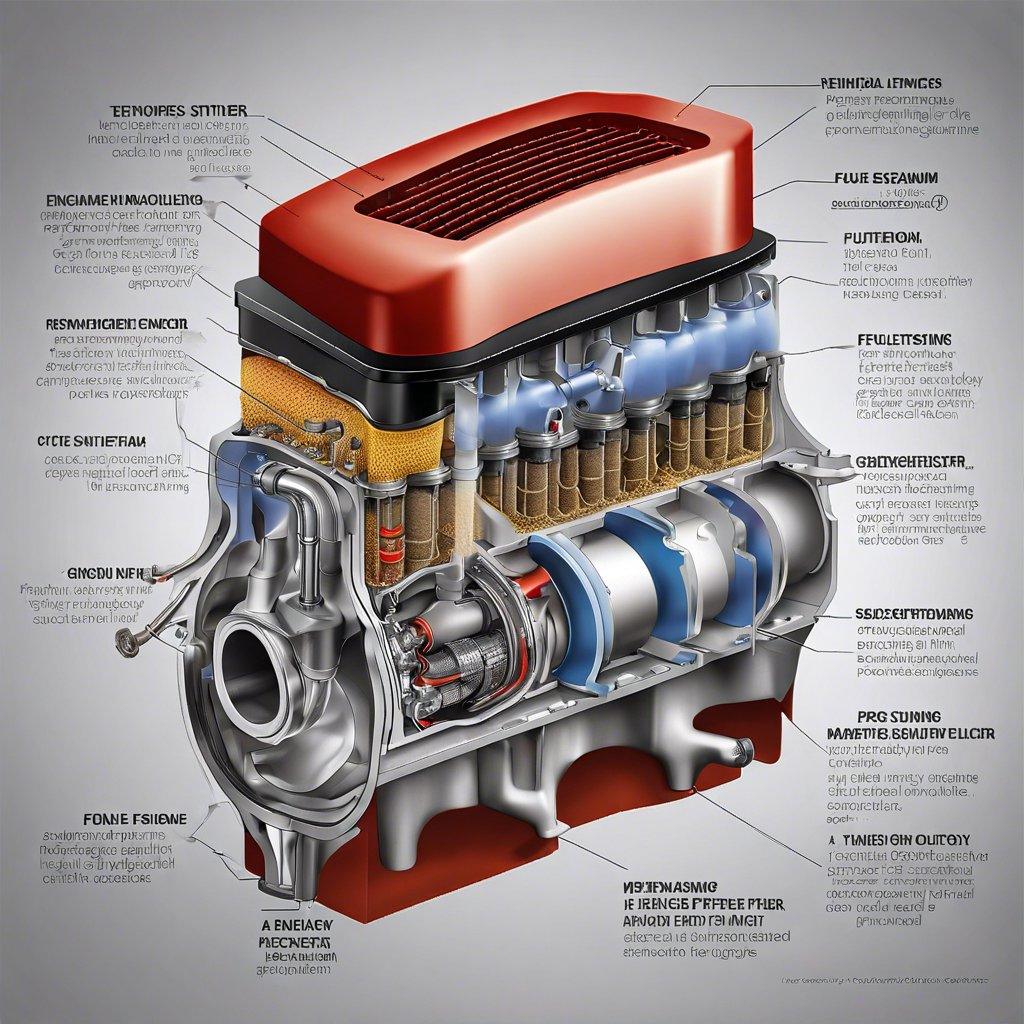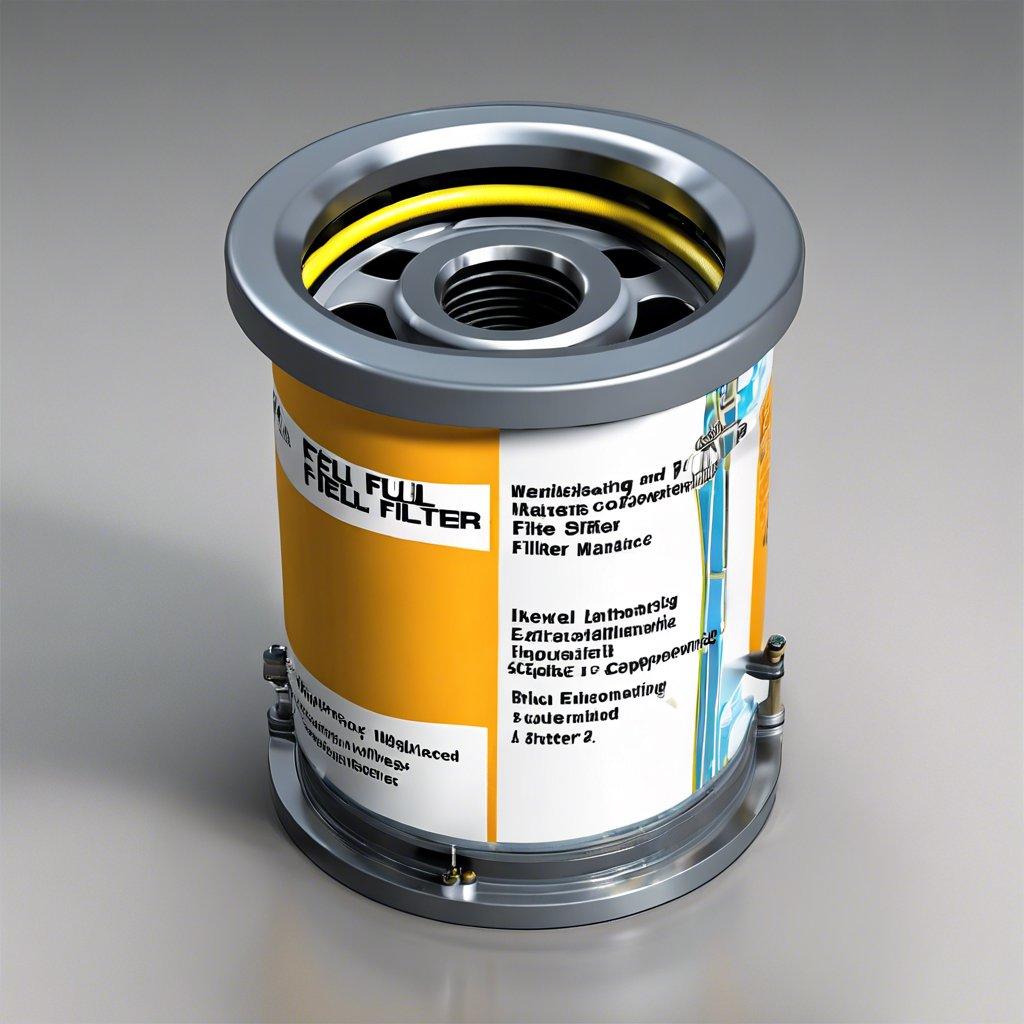Adapting to Modern Fuel Systems: The Evolution of the Fuel Filter

In the ever-evolving landscape of automotive engineering, the fuel filter has emerged as a critical component in ensuring the efficiency and longevity of modern fuel systems. As engines become increasingly sophisticated, the demands placed on fuel filtration have grown exponentially, requiring a deeper understanding of the intricate dynamics involved.
Fuel System Advancements and Fuel Filter Innovations
The transition to advanced direct-injection and common-rail fuel systems has brought about a new era of fuel filtration. These systems operate at higher pressures and require meticulous fuel purity to prevent premature wear and tear on delicate components. Fuel filter manufacturers have risen to the challenge, developing innovative designs and materials to meet these stringent requirements.
Microfiltration and Nanofiltration Technologies
The introduction of microfiltration and nanofiltration technologies has revolutionized the fuel filter landscape. These advanced filtration methods can capture contaminants as small as a few microns, ensuring that only the cleanest fuel reaches the engine. By removing microscopic particles, these filters safeguard critical fuel system components, such as high-pressure fuel pumps and injectors, from premature failure.
Intelligent Fuel Filter Monitoring Systems
Complementing the advancements in filtration technology, the integration of intelligent monitoring systems has further enhanced the capabilities of modern fuel filters. These systems can detect changes in fuel flow, pressure, and contamination levels, providing real-time data to help maintenance teams optimize filter replacement intervals and maintain optimal fuel system performance.
Fuel Filter Selection and Application Considerations
When selecting fuel filters for contemporary fuel systems, it is crucial to consider factors such as flow rate, micron rating, and compatibility with specific engine and fuel system requirements. Proper filter selection and installation can have a significant impact on engine performance, fuel economy, and overall system longevity.
- Flow rate: Ensuring the fuel filter can accommodate the engine’s fuel demand
- Micron rating: Choosing the appropriate filtration level to protect critical components
- Compatibility: Verifying the filter’s suitability for the specific fuel system and engine type
| Fuel Filter Specifications | Recommended Range |
|---|---|
| Flow Rate | 20-200 liters per hour |
| Micron Rating | 2-10 microns |
| Operating Pressure | Up to 300 bar (4,350 psi) |
By understanding the evolving complexities of contemporary fuel filtration, engineering and technology professionals can ensure the optimal performance and longevity of modern fuel systems, contributing to enhanced vehicle reliability and efficiency.
Transforming Fuel Efficiency: The Pivotal Role of the Modern Fuel Filter
The modern fuel system has undergone a remarkable transformation, driven by the relentless pursuit of improved fuel efficiency and environmental sustainability. At the heart of this evolution lies the humble yet crucial fuel filter, a component that has adapted and innovated to meet the changing demands of modern engines.
The Fuel Filter’s Evolving Significance
Once a simple component tasked with removing impurities from fuel, the fuel filter has evolved into a sophisticated device that plays a vital role in optimizing engine performance and fuel efficiency. As engines have become more complex, with tighter tolerances and advanced fuel injection systems, the fuel filter has had to rise to the challenge, providing enhanced filtration and protection to ensure reliable operation.
Enhancing Fuel Efficiency through Filtration
The modern fuel filter is designed to remove even the smallest contaminants from the fuel, preventing them from entering the sensitive components of the fuel system. By maintaining a high level of fuel purity, the filter helps to ensure efficient combustion, reduced wear on fuel injectors, and improved overall engine performance. This, in turn, contributes to enhanced fuel efficiency, reducing fuel consumption and emissions.
Adapting to Changing Fuel Compositions
As the fuel landscape has evolved, with the introduction of biofuels, alternative fuels, and more stringent fuel quality standards, the fuel filter has had to adapt accordingly. Specialized filter media and enhanced filtration capabilities have been developed to address the unique challenges posed by these new fuel formulations, ensuring that the fuel system remains protected and optimized for performance.
The Fuel Filter’s Role in Emissions Reduction
In addition to improving fuel efficiency, the modern fuel filter plays a crucial role in reducing emissions. By removing contaminants and maintaining fuel purity, the filter helps to minimize the formation of harmful particulates and other pollutants during the combustion process. This aligns with the increasing focus on environmental sustainability and stricter emissions regulations in the automotive industry.
The Future of Fuel Filtration
As the automotive industry continues to evolve, the fuel filter will undoubtedly play an even more critical role in ensuring the efficient and clean operation of modern engines. Advancements in filter technology, such as the use of advanced materials, intelligent monitoring systems, and predictive maintenance capabilities, will further enhance the fuel filter’s ability to adapt to the changing needs of the industry.
The fuel filter has evolved from a simple component to a crucial enabler of fuel efficiency and environmental sustainability in modern engines. By continuously adapting to the changing fuel landscape and the increasing demands of advanced engine technologies, the fuel filter has become an indispensable part of the modern fuel system. As the automotive industry continues to push the boundaries of performance and efficiency, the fuel filter will undoubtedly remain at the forefront of this transformation, ensuring the reliable and clean operation of engines for years to come.
Meta Keywords
- Fuel Filter
- Fuel Efficiency
- Engine Performance
- Emissions Reduction
- Fuel System Evolution
- Automotive Technology
- Filtration Innovation
Optimizing Performance: How the Fuel Filter Adapts to Evolving Fuel Systems
The Changing Landscape of Fuel Systems
The automotive industry has witnessed a remarkable transformation in recent years, with the emergence of increasingly sophisticated fuel systems designed to meet stricter emissions regulations and deliver enhanced performance. As these advancements have unfolded, the humble fuel filter has played a pivotal role in ensuring the smooth and efficient operation of these complex systems.
The Evolving Role of the Fuel Filter
Once a simple component tasked with removing large particulates, the fuel filter has evolved to become a critical element in maintaining the integrity of modern fuel systems. With the introduction of high-pressure fuel pumps, common-rail injection, and advanced engine management systems, the demands placed on the fuel filter have become increasingly complex.
Optimizing Performance: The Fuel Filter’s Adaptation
To keep pace with these advancements, fuel filter manufacturers have had to innovate and adapt their designs to meet the evolving needs of modern fuel systems. Increased filtration efficiency, enhanced flow capacity, and improved dirt-holding capabilities have become essential features to ensure optimal performance and engine longevity.
The Importance of Fuel Purity
In the pursuit of improved fuel efficiency and reduced emissions, fuel composition has become more refined, with the introduction of low-sulfur fuels and bio-blended fuels. The fuel filter plays a crucial role in maintaining the purity of these specialized fuels, preventing the ingress of contaminants that could compromise engine performance and reliability.
Fuel Filter Technology: Staying Ahead of the Curve
Fuel filter manufacturers have responded to these evolving challenges by developing advanced filtration technologies, such as multi-layered media and enhanced water-separating capabilities. These innovations ensure that the fuel filter can effectively remove even the smallest particulates and water droplets, protecting sensitive fuel system components from harmful contamination.
Maintaining Peak Performance: The Fuel Filter’s Role
- Ensures consistent fuel flow and pressure to the engine
- Protects fuel injectors and other sensitive components from wear and tear
- Extends the lifespan of the fuel pump and other critical fuel system components
- Contributes to improved fuel efficiency and reduced emissions
| Fuel System Evolution | Fuel Filter Adaptation |
|---|---|
| High-pressure fuel pumps | Increased flow capacity and filtration efficiency |
| Common-rail injection | Enhanced water-separating capabilities |
| Advanced engine management systems | Improved dirt-holding capacity and extended service intervals |
As the automotive industry continues to push the boundaries of fuel system technology, the fuel filter remains a vital component in ensuring the optimal performance and longevity of these sophisticated systems. By adapting and evolving alongside the changing landscape, the fuel filter plays a crucial role in enabling the next generation of efficient and clean-running engines.
Fueling the Future: Innovative Fuel Filter Technologies for Tomorrow’s Engines
The Importance of Fuel Filtration
As engine technology continues to advance, the role of the fuel filter has become increasingly critical in ensuring the reliable and efficient operation of modern vehicles. Fuel systems have become more complex, with tighter tolerances and higher pressures, making the filtration of contaminants a paramount concern.
Innovative Fuel Filter Designs
Fuel filter manufacturers have responded to these challenges by developing innovative technologies that provide enhanced filtration capabilities, improved flow characteristics, and increased durability. From advanced filter media to enhanced housing designs, these new fuel filter solutions are engineered to meet the demanding requirements of today’s and tomorrow’s engines.
Improved Filtration Efficiency
The latest fuel filter designs incorporate cutting-edge filtration media that can capture even the smallest particulates, ensuring that only clean fuel reaches the critical components of the engine. This increased filtration efficiency helps to prevent premature wear and tear, ultimately extending the lifespan of fuel system components and enhancing overall engine performance.
Enhanced Flow Characteristics
Modern fuel filter designs also focus on improving flow characteristics, allowing for higher fuel flow rates without compromising filtration effectiveness. This is particularly important for high-performance and diesel engines, which require a steady and uninterrupted fuel supply to maintain optimal power output and efficiency.
Increased Durability and Reliability
Fuel filter manufacturers have also made significant advancements in the materials and construction of their products, resulting in fuel filters that are more durable and reliable than ever before. These enhanced fuel filters are designed to withstand the rigors of modern driving conditions, ensuring reliable performance and extended service intervals.
As the automotive industry continues to evolve, the role of the fuel filter has become increasingly crucial in maintaining the performance and longevity of modern engines. The innovative fuel filter technologies described in this article are poised to play a vital role in fueling the engines of the future, delivering enhanced filtration, improved flow characteristics, and increased durability to meet the ever-changing demands of the industry.
Meta Keywords: fuel filter, fuel filtration, engine performance, fuel system, advanced filtration, flow characteristics, durability, reliability, automotive technology




Post Comment